Episodes
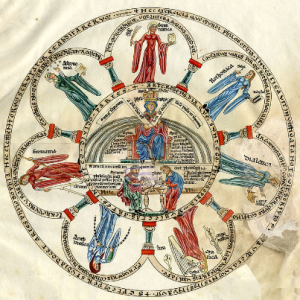
Tuesday Oct 16, 2018
Tuesday Oct 16, 2018
The purpose of education, stated on government websites, school websites, university websites, and education policy and reform websites was pretty much the same: "to better prepare students to compete in a global economy." That is, the purpose of education is almost universally believed to be purely utilitarian. One way or another, it’s a matter of vocational training. The old days of Latin, Greek, the classics, poetry, even history and literature are behind us now. Today computer science, technology, economics, accounting and engineering rule. After all, we have a global economy to run.
The purpose of education, however, has been debated since ancient times. Contrary to a utilitarian education Seneca who lived 4 BC to AD 64 wrote, “I respect no study, and deem no study good, which results in money-making.” And don’t forget that at the time, Rome had a global economy to run.
Dr. Tiffany Schubert joined the Wyoming Catholic College faculty this year to teach the heart of the liberal arts: the Trivium. Dr. Schubert has researched and taught on the nature of a liberal education and is our guest this week on The After Dinner Scholar.
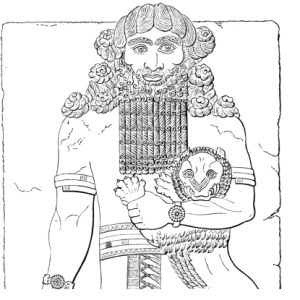
Tuesday Oct 09, 2018
Gods, Monsters, and Heroes: The Epic of Gilgamesh with Prof. Kyle Washut
Tuesday Oct 09, 2018
Tuesday Oct 09, 2018
“When the gods created Gilgamesh,” the ancient text says, “they gave him a perfect body. Shamash the glorious sun [god] endowed him with beauty, Adad the god of the storm endowed him with courage, the great gods made his beauty perfect, surpassing all others, terrifying like a great wild bull. Two thirds they made him god and one third man.”
Every year freshmen at Wyoming Catholic College struggle to find their bearings in the midst of The Epic of Gilgamesh. The epic was composed in Babylon in the mid- to late-second millennium BC. It was something of a founding myth for the Babylonian kings and the parallels between Gilgamesh and the Bible and Gilgamesh and Homer are, to say the least, intriguing.
Professor Kyle Washut has just finished teaching The Epic of Gilgamesh and is anxiously awaiting student papers reflecting on the tale. Prof. Washut is our guest this week on The After Dinner Scholar.
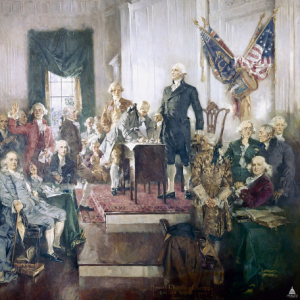
Tuesday Oct 02, 2018
Popular Government and Our Constitution with Dr. Pavlos Papadopoulos
Tuesday Oct 02, 2018
Tuesday Oct 02, 2018
In July 1776, John Adams wrote that the signing of the Declaration of Independence on July 4 should be celebrated, “with Pomp and Parade, with Shews, Games, Sports, Guns, Bells, Bonfires and Illuminations.”
Here in Lander, Wyoming on the Fourth of July, we celebrate in a way that would make John Adams proud. But come September 17, at Wyoming Catholic College, we also celebrate Constitution Day, the date in 1787 on which our Constitution was signed and sent to the states for ratification. Rather than celebrating with “Guns, Bells, Bonfires and Illuminations,” we quietly reflect.
Dr. Pavlos Papadopoulos, Assistant Professor of Humanities, who is new to the college this year, lectured on the topic “Popular Government and Our Constitution” at this year’s Constitution Day celebration. Dr. Papadopoulos is our guest this week on The After Dinner Scholar.
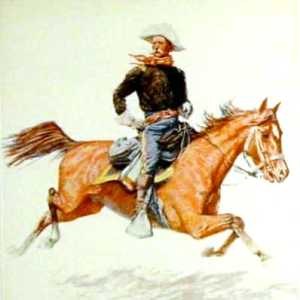
Tuesday Sep 25, 2018
The Virginian: Wyoming Cowboys and the Liberal Arts with Prof. Kyle Washut
Tuesday Sep 25, 2018
Tuesday Sep 25, 2018
The train passengers watched as one cowboy after another tried to rope an uncooperative horse. “Then for the first time I noticed a man who sat on the high gate of the corral, looking on. For he now climbed down with the undulations of a tiger, smooth and easy, as if his muscles flowed beneath his skin. The others had all visibly whirled the rope, some of them even shoulder high. I did not see his arm lift or move. He appeared to hold the rope down low, by his leg. But like a sudden snake I saw the noose go out its length and fall true; and the thing was done. As the captured pony walked in with a sweet, church-door expression, our train moved slowly on to the station, and a passenger remarked, ‘That man knows his business.’” Thus begins Owen Wister’s 1902 novel The Virginian.
Being Wyoming Catholic College, we used Wister’s tale about Wyoming in the 1870s as the subject of a recent all-school seminar. Our entire school community read the book and met in groups for discussion followed by dinner, roping, oil-barrel bull rides, black powder rifles, and Western dancing.
Prof. Kyle Washut, a Wyoming native, has long loved the book and is our guest on this edition of The After Dinner Scholar.
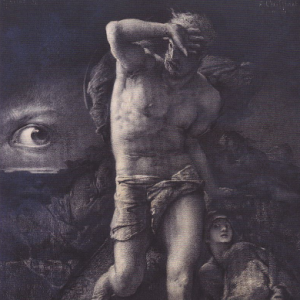
Tuesday Sep 18, 2018
Veritatis Splendor and Conscience with Dr. Kent Lasnoski
Tuesday Sep 18, 2018
Tuesday Sep 18, 2018
Last week theologian Dr. Jeremy Holmes gave us an introduction to St. John Paul II’s 1993 encyclical, Veritatis Splendor, The Splendor of Truth.
St. John Paul II wrote the encyclical in response to trends in moral theology that for the most part denied that morality can be universal, objective, and permanent.
He critiqued any doctrines that would “grant to individuals or social groups the right to determine what is good or evil.”
Yet we make judgments about good and evil every day and the source of those judgments is our consciences.
Dr. Kent Lasnoski teaches moral theology at Wyoming Catholic College and has for many years been a student of St. John Paul II and his ethical writings. In this edition of The After Dinner Scholar, he explains the nature of conscience in Pope St. John Paul's writings.
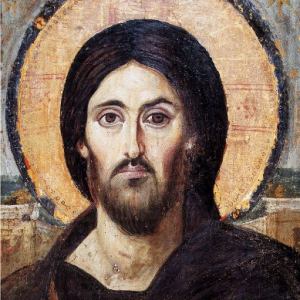
Tuesday Sep 11, 2018
"The Splendor of Truth" Twenty-Five Years Later (Part 1) with Dr. Jeremy Holmes
Tuesday Sep 11, 2018
Tuesday Sep 11, 2018
As George Weigel’s biography of St. John Paul II makes clear, even as a young man, Karol Wojtyła had a passionate concern for truth. In his theological and philosophical studies, the question “What is truth?” was utmost in his mind along with the question of how to communicate the truth to others. And truth became a theme of his pontificate.
Twenty-five years ago last month on August 6, 1993, the Feast of the Transfiguration, John Paul promulgated the encyclical Veritatis Splendor, The Splendor of Truth. What he had to say needed to be heard twenty-five years ago and needs to be heard with even greater urgency today.
In this week’s podcast, part one of a two part series, Dr. Jeremy Holmes explains the need for the encyclical, the argument St. John Paul made, and some of the errors he addressed.
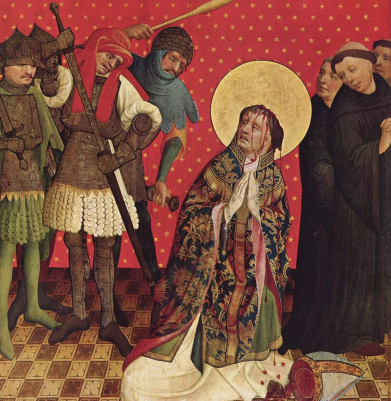
Tuesday Sep 04, 2018
Courage, Martyrdom, and "Murder in the Cathedral" with Prof. Kyle Washut
Tuesday Sep 04, 2018
Tuesday Sep 04, 2018
I see nothing quite conclusive in the art of temporal government,
But violence, duplicity and frequent malversation.
King rules or barons rule:
The strong man strongly and the weak man by caprice.
They have but one law, to seize the power and keep it.
And the steadfast can manipulate the greed and lust of others.
The feeble is devoured by his own.
Those words are from T. S. Eliot’s play “Murder in the Cathedral,” the story of tSt. Thomas Becket's martyrdom. Becket was King Henry II pal who he appointed Chancellor and then Archbishop of Canterbury. As Chancellor, Becket was Henry’s man to do the king’s will. But when he became Archbishop, something changed. He realized that he now needed to be God’s man, a decision that—given the outcomes—enraged Henry.
Prof. Kyle Washut discussed Eliot, Thomas, and what he called “Perfected Courage” at the 2018 Wyoming School of Catholic Thought. Prof. Washut is our guest this week on The After Dinner Scholar.
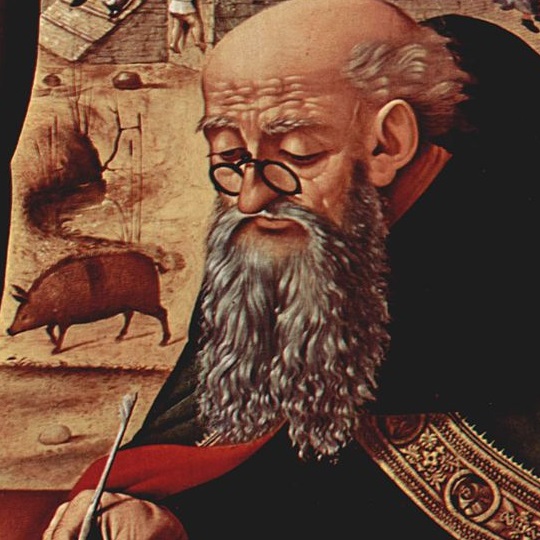
Tuesday Aug 28, 2018
Lecture - St. Antony and Purifying Courage by Prof. Kyle Washut
Tuesday Aug 28, 2018
Tuesday Aug 28, 2018
For Achilles, Hector who killed Patroclus was the great enemy. For Antigone, it was Creon the tyrant. For Aristotle, it was those attacking the city. Each case called for courage. But in the Christian era, something changed.
When Christians in the fourth century thought of courage, St. Antony came to mind. He led no army, fomented no rebellion against human tyrants, and did not defend any city. Instead Antony was a paragon of the courage it takes to battle the world, the devil, and the flesh, that is, our inner self, our sin nature.
At the Wyoming School of Catholic Thought, Prof. Kyle Washut lectured on St. Athanasius’ masterful “Life of Antony.” Here are his comments on that life and this new way of understanding courage.
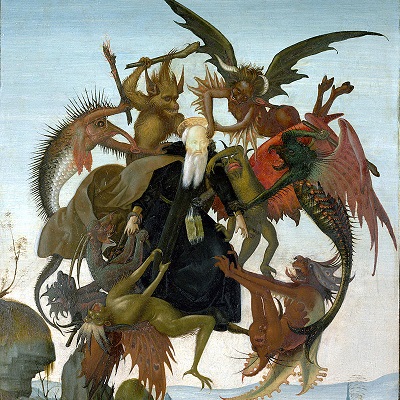
Tuesday Aug 28, 2018
St. Antony and the Courage That Purifies with Prof. Kyle Washut
Tuesday Aug 28, 2018
Tuesday Aug 28, 2018
“When St. Antanasius composed Life of Antony in 365,” noted Prof. Kyle Washut at the 2018 Wyoming School of Catholic Thought, “he produced an instant best seller and a new genre of literature.”
While Life of Antony was a sensation in the fourth century, Prof. Washut noted that for twenty-first century readers—even those who share Antony’s Christian faith—the book can “be difficult if not outright off-putting” and “even repulsive.”
Is the problem something about Antony or is it something about us? How do we understand Antony’s life, mission, and courage in all those battles with the devil and his demons?
Prof. Washut is our guest this week on The After Dinner Scholar.
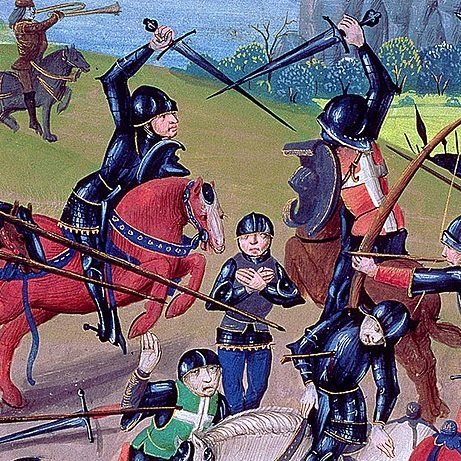
Tuesday Aug 21, 2018
Tuesday Aug 21, 2018
His dad was king of England… or at least sort of. That being the case, how does a usurper’s son create legitimacy?
After the death of Henry IV of England, Prince Hal as everyone has been calling him, has a plan to establish himself on the throne as Henry V despite his shaky claim to the crown. His success depends on careful planning, courageous battling, and--to his surprise--divine Providence.
At the Wyoming School of Catholic Thought in June, Dr. Glenn Arbery, president of Wyoming Catholic College explained how Shakespeare told the tale of Prince Hal in the play "Henry V."
Here are Dr. Arbery’s remarks in their entirety.

